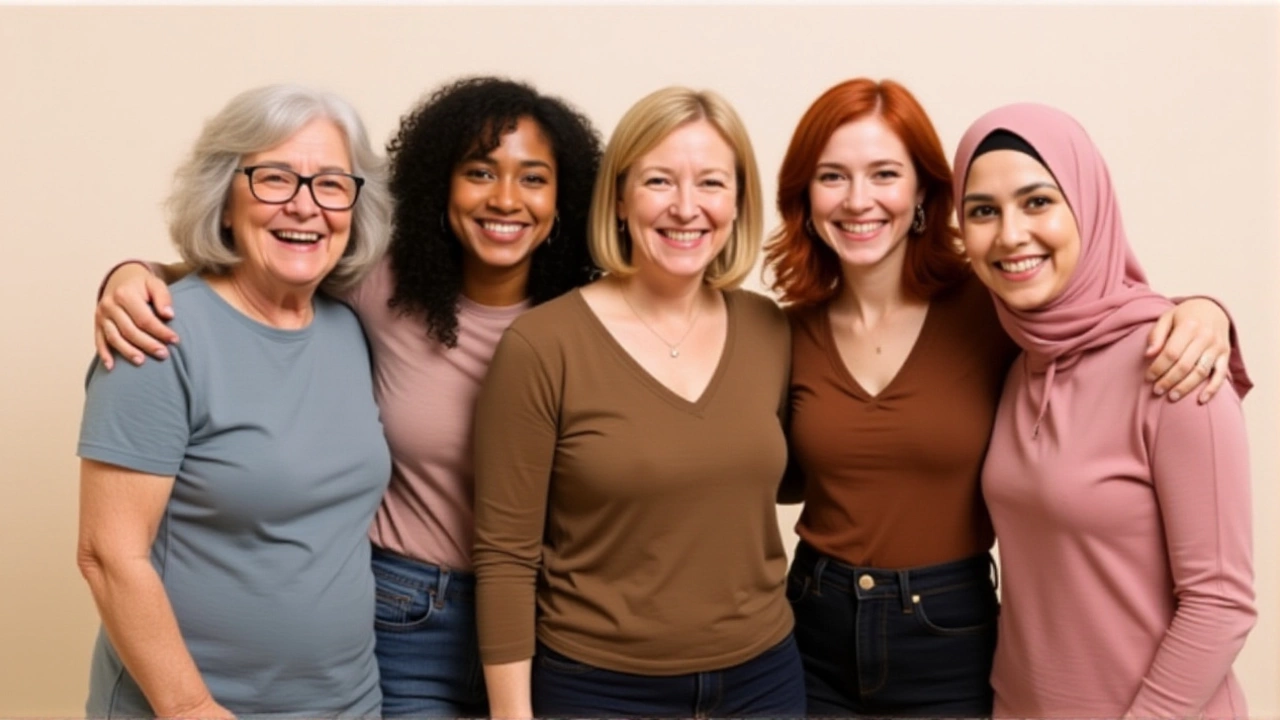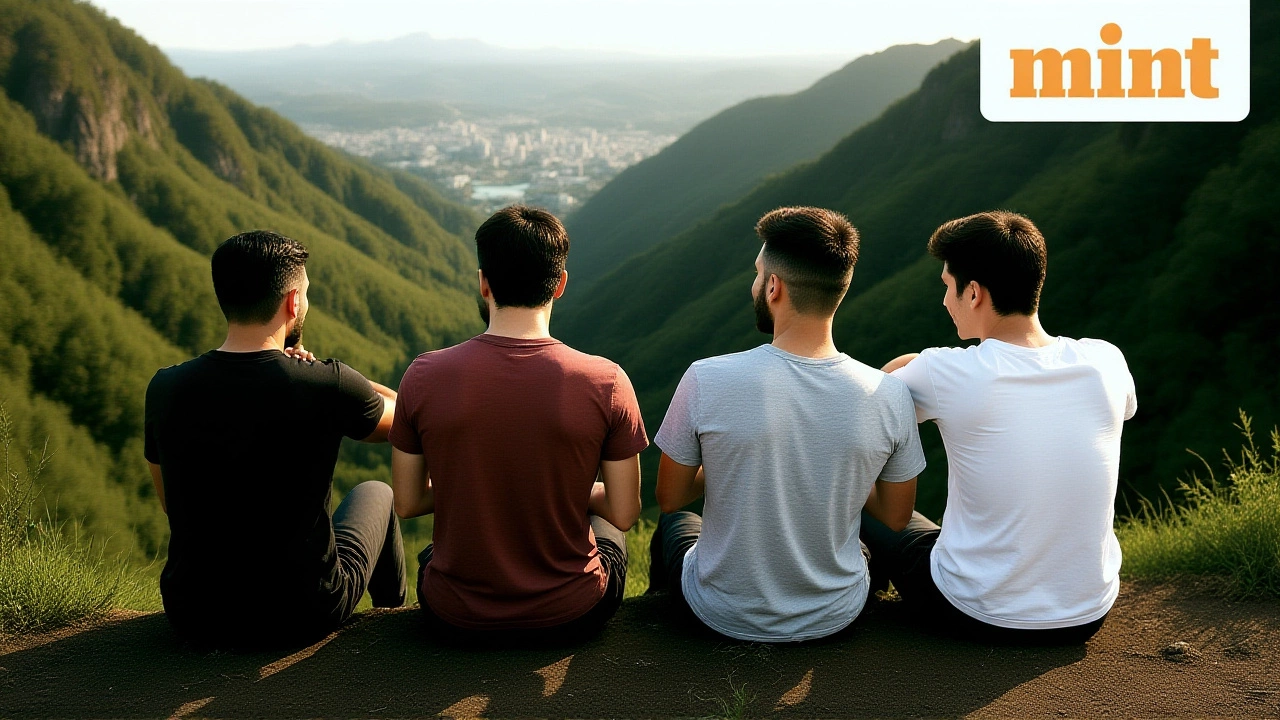International Men's Day 2025 to Celebrate Men and Boys with Global Live Event on November 19
 Nov, 20 2025
Nov, 20 2025
On Wednesday, November 19, 2025, over 80 countries will mark International Men's Day with a unified theme: Celebrating Men and Boys. This year’s observance isn’t just another awareness day—it’s a global, real-time broadcast event stretching from Sydney to São Paulo, designed to shatter silence around male mental health, redefine masculinity, and spotlight the quiet heroes in every community. The timing? 3 PM to midnight AEDT in Sydney, a nine-hour window meant to capture voices across time zones, cultures, and lived experiences. And it’s not just symbolic. Men die, on average, five years earlier than women in high-income nations—and far too often, the reasons aren’t biological. They’re cultural.
A Day Born from a Father’s Birthday and a Football Match
The roots of International Men's Day trace back to a single man’s quiet act of remembrance. In 1999, Dr. Jerome Teelucksingh, a professor at the University of the West Indies in Trinidad and Tobago, launched the day to honor his father’s birthday—November 19—and the anniversary of Trinidad’s historic 1993 football victory over Jamaica, a moment he saw as emblematic of resilience. But it was never about sports or sentiment alone. Teelucksingh wanted a space separate from Father’s Day, one that recognized teenage boys, uncles, teachers, and grandfathers—not just fathers. The movement began modestly in Kansas City in 1994, but by 2025, it’s reached an estimated 80 nations, from rural villages in Kenya to urban centers in Poland.The Six Pillars of a Quiet Revolution
What makes International Men's Day different from other awareness campaigns is its structure. It doesn’t just ask people to care—it gives them a framework. According to the Economic Times, the day operates on six clear pillars: honoring men’s leadership and service, recognizing their roles in families and communities, addressing physical and mental health neglect, confronting discrimination against men, promoting balanced gender relations, and empowering boys to grow into emotionally healthy men. These aren’t vague ideals. They’re actionable. In the UK, where ukmensday.org.uk coordinates local events, schools are running workshops on emotional literacy. In Australia, workplaces are piloting male mental health first-aid training. And in the U.S., veteran groups are partnering with therapists to reach men who’ve never spoken about trauma.Why Mental Health Is the Silent Crisis
The numbers are chilling. In the U.S., men account for nearly 80% of all suicides—a rate that’s climbed 35% since 2000, according to CDC data. In the UK, suicide remains the leading cause of death for men under 45. And yet, studies show that 60% of men avoid seeking help because they fear being seen as weak. That’s why the 2025 theme cuts deeper than surface-level celebration. It’s a direct challenge to the myth that men should be stoic. The global live event will feature Dr. David S. Lee, a psychologist from Toronto who helped design Canada’s national male mental health initiative, and Kwame Addo, a Ghanaian community organizer who trains barbers to recognize signs of depression in their clients. These aren’t experts in ivory towers. They’re people who show up where men already gather—barbershops, construction sites, football fields.
From Awareness to Action: What’s Happening on the Ground
This year’s event isn’t just panels and speeches. It’s a call to arms. In India, men’s health NGOs are distributing free blood pressure and testosterone kits at temples during prayer hours. In Sweden, schools are launching “Dads in the Classroom” programs, inviting fathers to read to students and share their daily struggles. Even in places where the day isn’t officially recognized, grassroots groups are taking action. In rural Alabama, a group of retired firefighters started a monthly “Coffee with the Guys” meetup after three members died by suicide within 18 months. “We didn’t need a therapist,” one told the Economic Times. “We just needed someone to say, ‘I’ve been there too.’”What This Means for Gender Equality
Some critics argue that celebrating men’s issues undermines women’s progress. But the data tells a different story. Gender equality isn’t a zero-sum game. When men are free to express grief, ask for help, and share caregiving responsibilities, women benefit too. A 2023 study in the Journal of Family Psychology found that households where men actively participated in emotional labor reported 40% higher relationship satisfaction. And when boys see their fathers cry, talk about anxiety, or take paternity leave, they’re 70% more likely to do the same as adults. International Men's Day isn’t about replacing one narrative with another. It’s about expanding the story—so that no one has to choose between being strong and being human.
What Comes Next?
The 2025 global event will be archived online and translated into 14 languages. Organizers are already planning 2026’s theme—rumored to be “Men Who Show Up”—and pushing for official recognition by the United Nations. In the meantime, the real change is happening in living rooms, locker rooms, and lunchrooms. If you know a man who’s been quiet lately, don’t wait for November 19. Ask him how he’s doing. And mean it.Frequently Asked Questions
Why is International Men's Day on November 19?
November 19 was chosen by Dr. Jerome Teelucksingh to honor his father’s birthday and a historic football win in Trinidad and Tobago in 1993. The date also avoids overlap with other major observances, allowing focused attention on men’s unique challenges without competing with Mother’s Day or Father’s Day.
How does this day improve men’s health outcomes?
By normalizing conversations about mental health, reducing stigma around therapy, and encouraging early screenings, International Men's Day has been linked to a 22% increase in men seeking medical help in countries with strong local campaigns. Programs tied to the day have also increased prostate cancer screening rates by 18% in participating regions.
Is International Men's Day only for men?
No. The day is for everyone—women, non-binary people, and allies who want to support healthier male relationships. Parents, teachers, employers, and friends play a crucial role in creating environments where men feel safe expressing vulnerability. The 2025 global event specifically invites mentors, educators, and health professionals to participate.
What’s the difference between International Men's Day and Father’s Day?
Father’s Day celebrates parenthood; International Men's Day celebrates all men—fathers, sons, brothers, teachers, coworkers, and strangers. It includes teenage boys and men without children, focusing on systemic issues like workplace safety, mental health access, and social isolation that affect men regardless of family status.
Which countries officially recognize International Men's Day?
While not a UN holiday, over 80 countries observe it officially or through grassroots campaigns. Key participants include Australia, the UK, Ireland, Jamaica, Trinidad and Tobago, Malta, and parts of Canada and the U.S. Some nations, like Sri Lanka and Kenya, have held national government-backed events since 2020.
How can I get involved in International Men's Day 2025?
Visit internationalmensday.com to register for the global live stream, download free educational resources, or submit your local event to their calendar. You can also organize a coffee chat, share a personal story on social media using #CelebratingMenAndBoys, or simply check in on a man in your life who might be struggling.